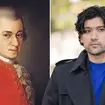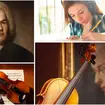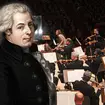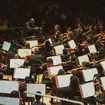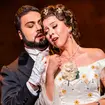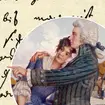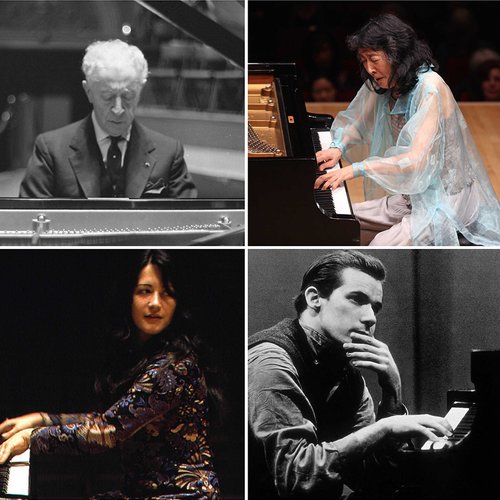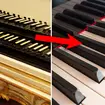Mozart's biography: a genius from birth? (1756 - 1761)
Mozart's birth was a cause for celebration for his family, but what actually went on on January 27th, 1756? What was Mozart's real birth name? And were there any clues about what was to come from this remarkable event?
It was a chilly January evening in Salzburg. Leopold Mozart, a musician, was pacing the floors of his flat at No. 9, Getreidegasse. His wife, Maria Anna, was in labour and about to give birth to a son. Despite the fact that this was the seventh time she had been through childbirth, Leopold and his wife only had one surviving child, a girl of 4. So, bearing in mind the joy a baby’s birth inspires today, you can imagine what Leopold and Maria Anna were feeling when, at around 8 o’clock that evening, Maria Anna gave birth to a baby boy.
Leopold was originally from the town of Augsburg. Mozart’s grandfather had been a bookbinder there and, despite the fact that the family had been in Salzburg for nearly 20 years by the time Mozart was born, Leopold still had several connections with Augsburg, both family and business. As a composer, Leopold would be hugely overshadowed by his new son, but as a violinist, he was very well respected. He was working on a violin teaching book, which was to be published by his friend, the Augsburg publisher, Johann Lotter, and the two exchanged letters on the subject. In one letter, written on 9 February 1756, Leopold included some of his other news to Lotter:
"Let me tell you, on 27th January, at 8 o’clock, my darling wf’ gave birth to a boy. . . both baby and mum are doing well. She sends her best wishes to you two."
What's in a name?
The new baby boy was born on 27th January which, according to the Catholic calendar, is the feast of St John Chrysostom of Constantinople. The very next day, Leopold had Mozart christened in Salzburg Cathedral. His full name was Johannes Chrysostomus Wolfgangus Theophilus Mozart.
So where did all those names come from? Well, Chrysostomus was chosen in light of the saint's day, and Wolfgang was a nod to Leopold’s father-in-law, Wolfgang Nikolaus. The Greek name Theophilus meaning 'loved by God' in English also appears in some documents as 'Gottlieb', the German version of the same name, 'Amadé', the French version, or the more familiar Latin version, 'Amadeus'.
Wolfgang Amadeus Mozart tends to be the name by which he is known these days, although Mozart himself preferred people to call him by the French version, Wolfgang Amadé Mozart.
The young Mozart
The pages of numerous biographies remain blank between his second day and his fifth birthday. So, as events over these 5 years fly by — the Seven Years' War, Monroe being elected president of the United States, George III becoming king of England — Mozart's life remains a mystery.
There are two things we do know, though: first, that someone as devoted to his son’s musical education as Leopold would almost certainly have started to impart his musical knowledge already; and, second, that at the age of just 3, according to Nannerl, he spent a lot of time at the keyboard picking out small chords. He was always doing this, she said, and would beam with pride when his embryonic music making sounded good.
When Mozart was five
To be absolutely accurate, Mozart was actually still just 4 years old when he learnt to play his first ever piece of music. Only 3 days before his fifth birthday, Leopold had written out the piece, a scherzo by the Viennese composer Wagenseil into Nannerl’s notebook for her to practise. At around 9 o'clock in the evening, on 26 January 1761, Mozart opened the notebook and sat down at the keyboard. Just half an hour later, he had learnt to play the piece. Leopold must have been over the moon, but, nevertheless, seems to have calmly noted the moment down, for posterity using Mozart’s nickname:
"Wolfgangerl mastered the minuet and trio the day before his fifth birthday, in just thirty minutes, at 9.30 pm, January 26th, 1761."
Before the year was out, and no doubt buoyed by his son's daily progress, Leopold felt confident enough to let the boy play piano in public, at the University of Salzburg. This must have been a bitter-sweet moment for Leopold, who had studied at the university but had never finished the course.
Discover Mozart's first concert and European tour (1762-1765)>



